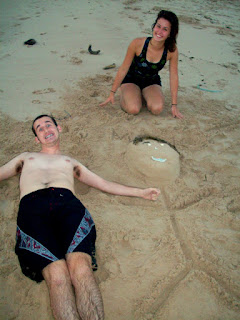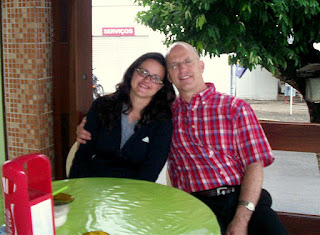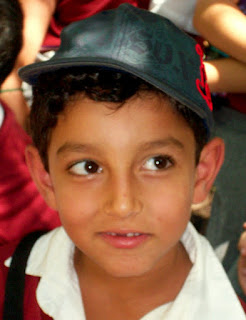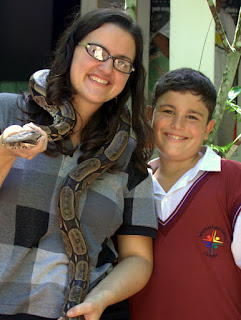Tomorrow we have a parent/teacher conference and meeting with the parents. I'll be talking to the partents about what they should expect concerning their child's process in English. Figured it was time to post something on here, so you get to see it too.
I'd like to talk mostly to the parents of the new students this morning, but I suppose it won't hurt for the other parents to listen as well.
Experts in the field of linguistics have discussed second language learning for quite a while and the general consensus among them is that a second language is acquired in the same way that a first language is acquired. You don’t force little babies to listen to grammar rules over and over again. You don’t think a five year-old who doesn’t understand adult conversation is any less intelligent. It is the same for a second language.
Some of you have students who have been here for 3 bimesters, now. In general, they are doing a great job grasping the language. They are doing all the work that must be done before fluency occurs. They are learning where words start, and where they stop. They are learning how to make the sounds that are unique to English. They are learning what English words look like and how to know if a word is English or Portuguese. They are learning the patterns of English. These are important aspects of language that must come before a student can be fluent. And these are skills that your students miraculously grasped when they were babies, learning Portuguese.
The first semester that a student is learning English, they’re facial expressions often convey frustration, helplessness, and fear. Learning a language is difficult. But as the second semester starts, something amazing happens. That look that they give me disappears. They still need a lot of help but their look changes to one that says “Hmmm…I think maybe I understand what she might be saying…” And their look changes even more the next semester. They still need help but now they are at the top of their class. Now they have confidence. Now the new students are asking them for help. Now they can show off how much they actually know.
The first year, students learn about the language. They learn how English works. The second year, students learn to use the language appropriately. They gain confidence and start playing with the language. They’re first year they are like a toddler, beginning to speak. They’re second year they are like a child, experimenting with the language and grasping some of the basic principles of grammar.
I wanted to explain this today in order to make the placement of students in levels of English more clear. We have two English levels at the International School, beginners and advanced. The advanced class has students who can communicate and use the rules of English. This class focuses on the conscience rules while the beginners’ class focuses on the unconscious rules of English. Like in Portuguese, a child cannot tell you why you say “ball red” and not “red ball”. They just know that that is how you say it. Rules are taught, and sometimes students understand them. But often they don’t. The understanding of each rule is not the goal the acquisition of language is.
So, next semester, some of the beginners will be ready for the advanced class. Most new students, though, will stay in the beginners’ class. This next year, they will be picking up some more basic rules and they will be gaining confidence
Please remember that all students learn differently. One of my brothers didn't start speaking until very late. He worried my mother. But when he was ready, he started. And he never stopped. Kids are different.
The books that we are going to use next year are a little more difficult than the books this year. Some students will go from book two to book one. Don’t take this as a sign of failure. Encourage your child.Tell them that they already learned a language once. They learned Portuguese and did a pretty good job of it! (If I could speak Portuguese as well as they do, I’d be pretty happy!) Learning a language takes time and effort. But your child is capable. So, encourage your kids and be proud of their progress.
Lindsay says I have to put a question at the end of my blog because "that's how literature is evolving". I told her that I don't like questions at the end of blogs. But she says I have to do it or I'll be Stupid McStoopy Pants. Since I can't think of anything worse than being a Stupid McStoopy Pants, here's the question:
What do you think about learning languages? Have you ever been frustrated or encouraged by the way someone taught you? What do you think is the best strategy for learning a language? Or...Is it possible to swim in Jello? If you had the chance to swim in Jello what flavor would you choose?










